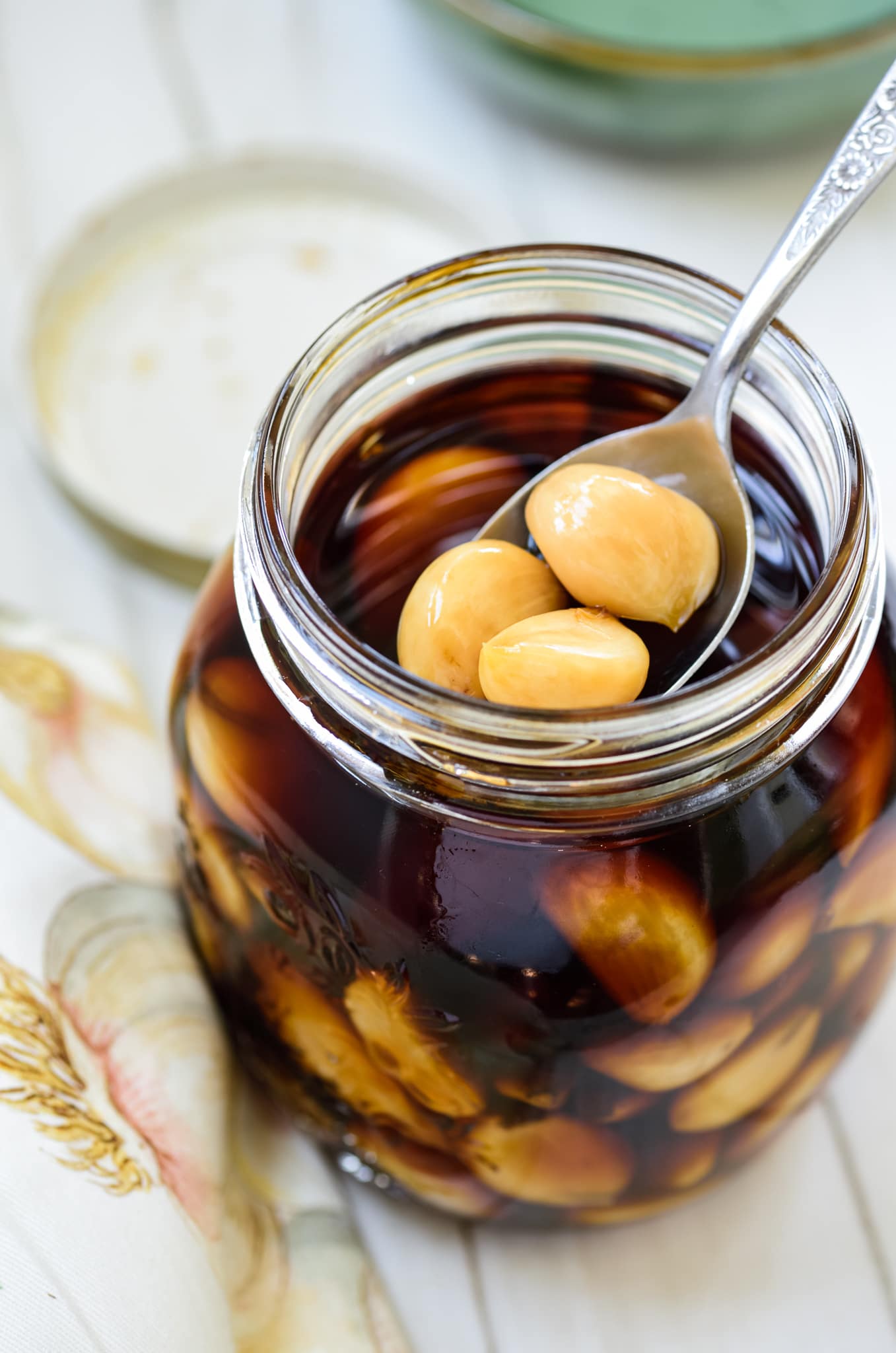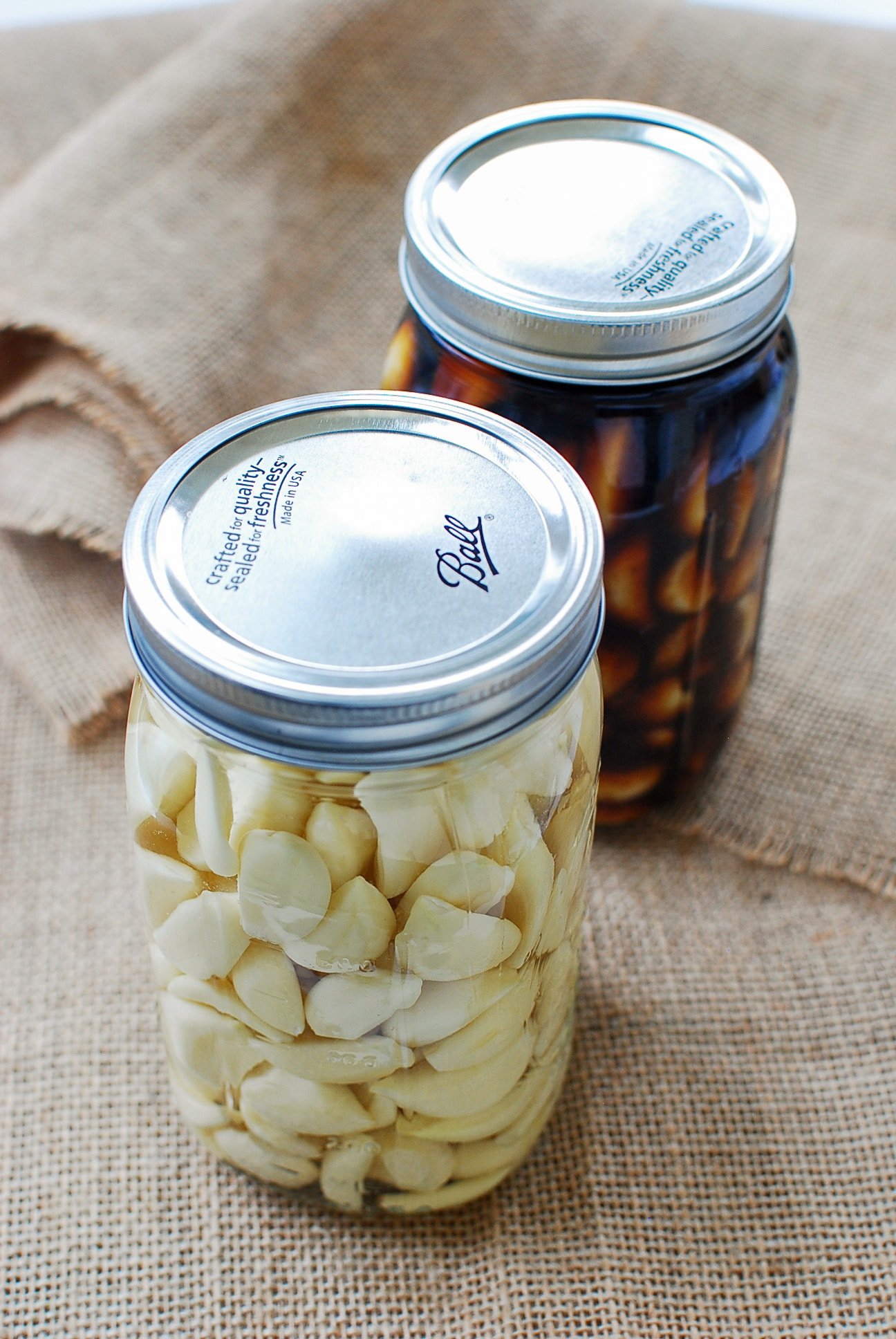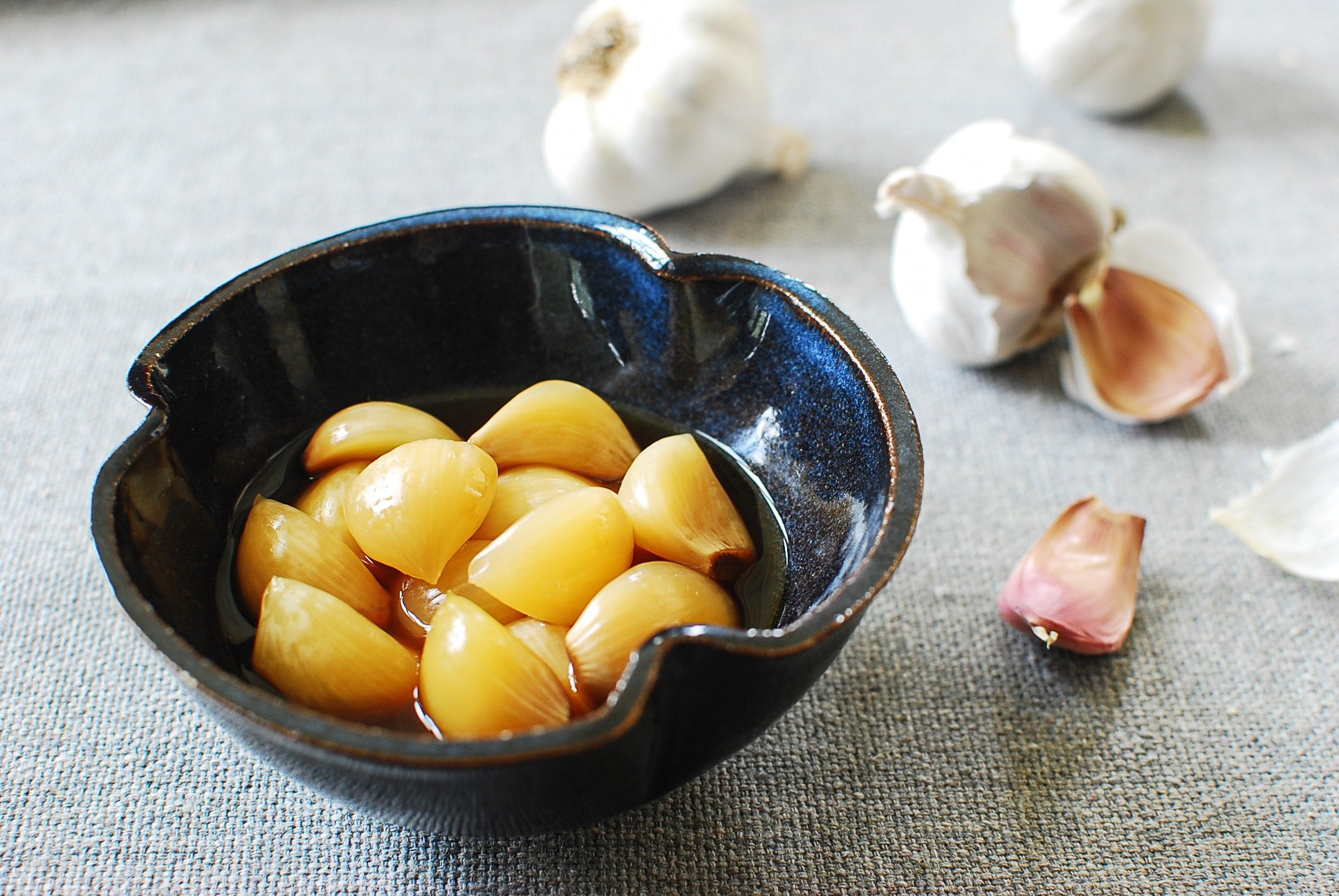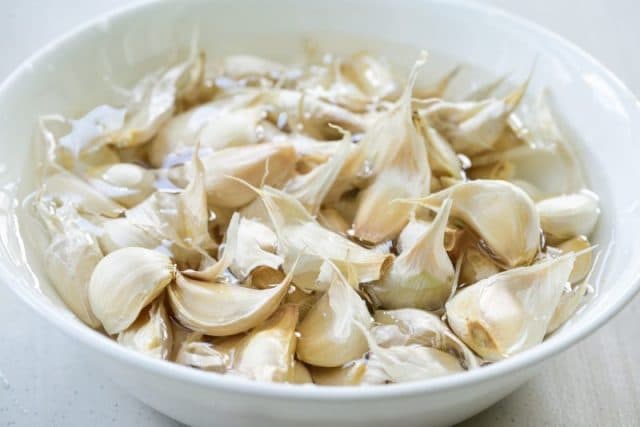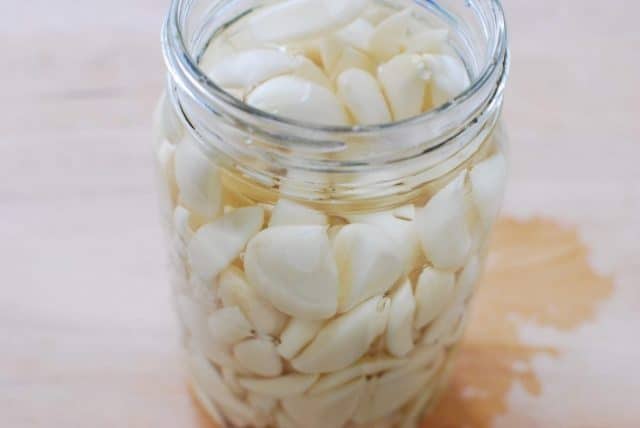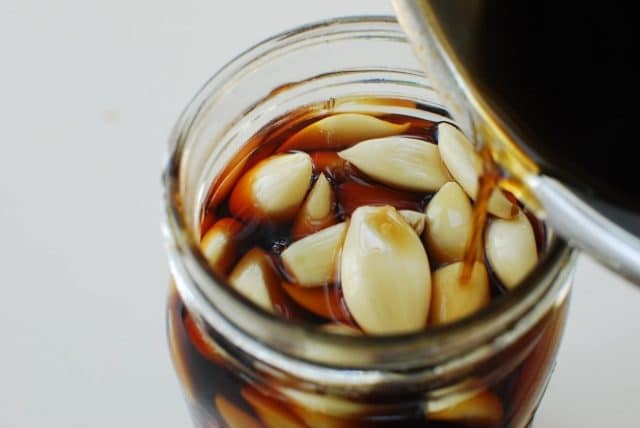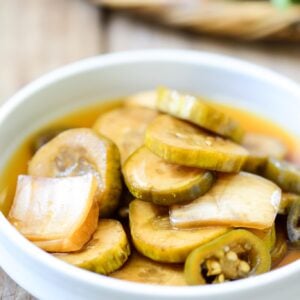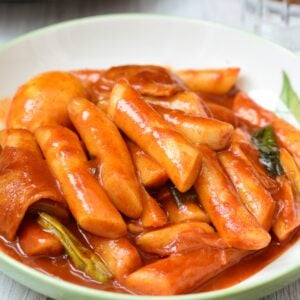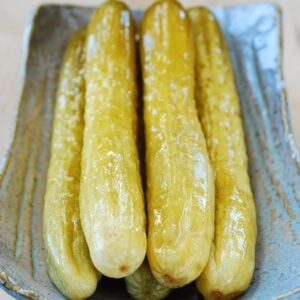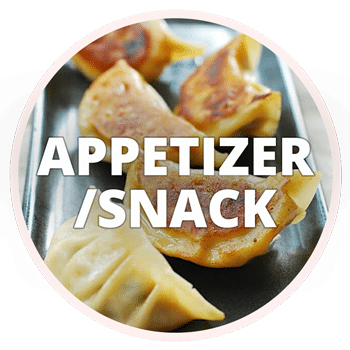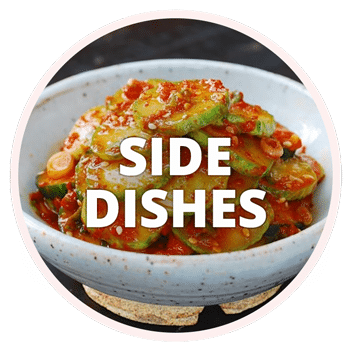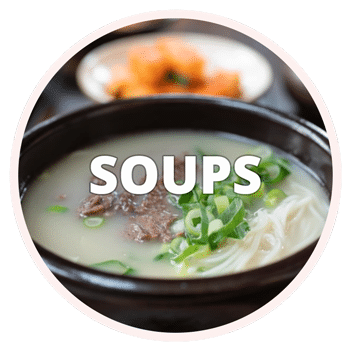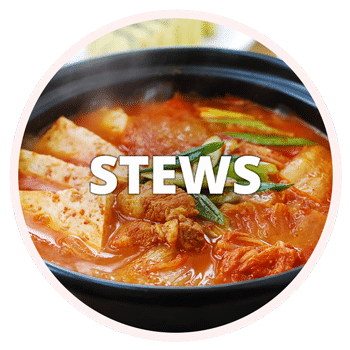Pickled garlic is a staple side dish in Korea. With a two-step process in this recipe, the garlic loses much of its pungent bite and becomes slightly sweet and tangy.
Pickled garlic (maneul jangajji – 마늘장아찌) is a staple side dish in Korea. It’s one of my father’s favorite dishes.Jeju Island, where my parents are from, is well known for its abundance of quality garlic. We used to get the freshest garlic shipped from our relatives inJeju –sometimes green young garlic and other times mature garlic.
Either way, my parents always pickled some of them. They would first soak garlic cloves in a vinegar brine for a few days and then pickle in a soy brine. Through this two-step process, the garlic loses much of its pungent bite and becomes slightly sweet and tangy.
There’s really no right or wrong amount of time the garlic need to be in the brine as long as you give it a few days. The longer you wait, the mellower the garlic will become.
You can use the garlic infused vinegar brine in anything that uses vinegar, but be aware it’s been diluted with water and quite pungent. The garlic infused soy brine can be used as a dipping or seasoning sauce.
As is the case with my vegetable pickles, this type of mild soy sauce and vinegar pickling is similar to “quick pickling” or “refrigerator pickling” in America. It’s not for canning! These pickles are not fermented because of the vinegar in the solution.
Why does garlic turn blue or green?
Don’t worry! According to the scientists, it’s safe to eat even if the garlic turns color. You can find many articles on this topic on the web. Here’s an excerpt from Epicurious:
The good news is, the color doesn’t affect the taste or safety of the garlic. “Nothing suggests the color affects the taste or flavor of the food,” says LaBorde. “You’re just rearranging some molecules inside the garlic. Even if it’s blue, it should be okay.”
The color change involves garlic’s natural sulfur content and enzyme that can react with a small trace of copper in the water or in the cooking utensils. It may or may not happen depending on many variables including garlic varieties and growing conditions. To help reduce the chance of discoloration:
1. Avoid exposure to sunlight. Try to keep the pickle jar in a dark place, such as inside the kitchen cabinet or cover with a dark cloth or bag.
2. Use no iodine salt such as kosher or sea salt.
3. Use bottled water for less mineral content.
It’s also important to use fresh, good quality garlic for pickling. Look for garlic heads that are firm to touch with no visible sprouts.
For more Korean cooking inspirations, follow along on YouTube, Pinterest, Twitter, Facebook, and Instagram.
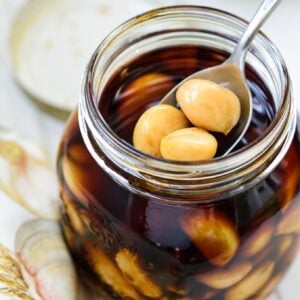
Ingredients
- 1 pound fresh garlic about 8 – 9 whole heads
For the vinegar brine:
- 1 cup vinegar (white or rice vinegar)
- 1 tablespoon non-iodized salt (Kosher salt or sea salt)
- 1 cup water (bottled water, preferably, for less mineral)
For the soy brine:
- ⅔ cup soy sauce
- 3 tablespoons sugar Use more for sweeter pickles
- 1 cup water
- ⅓ cup vinegar
- 1- quart jar with a lid The photo above shows two batches.
Instructions
- Separate the garlic cloves from the bulbs. Soak in hot water for 30 minutes or longer. Soaking the garlic helps the skins come off easily. Peel and remove the root ends with a small knife. Rinse and drain. Add to the jar.
- Stir the vinegar brine ingredients together until the salt is dissolved. Pour over the garlic cloves. The liquid should fully cover the garlic cloves. Close the lid and let stand at room temperature for 7 to 10 days or longer without exposure to sunlight. (See note 1)
- Bring the soy sauce, sugar and water to a boil, and gently boil for a minute over medium heat. Pour in the vinegar. Drain the vinegar brine (first brine) from the jar. Pour the soy brine, while still hot, over the garlic cloves.
- Make sure all the garlic cloves are fully covered. Close tightly with a lid, and let stand at room temperature for 2 weeks without exposure to sunlight (see note 1). The garlic can be eaten at this point, but it will taste better as it matures. Refrigerate after opening. The garlic cloves will keep for a few months or longer. (See note 2.)
Notes
- Keep the jar at a cool place without exposure to sunlight. I keep it in a kitchen cabinet that I don't have to open frequently.
- You can use the garlic infused vinegar brine in anything that uses vinegar, but be aware it's been diluted with water and quite pungent. The garlic infused soy brine can be used as a dipping or seasoning sauce.
This recipe was originally posted in May 2013, and it was also published on the Guardian as part of The 10 Best Garlic Recipes. I’ve updated it here with new photos, more information and minor changes to the recipe.


